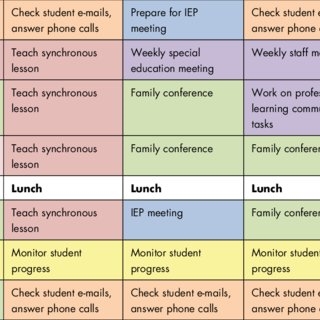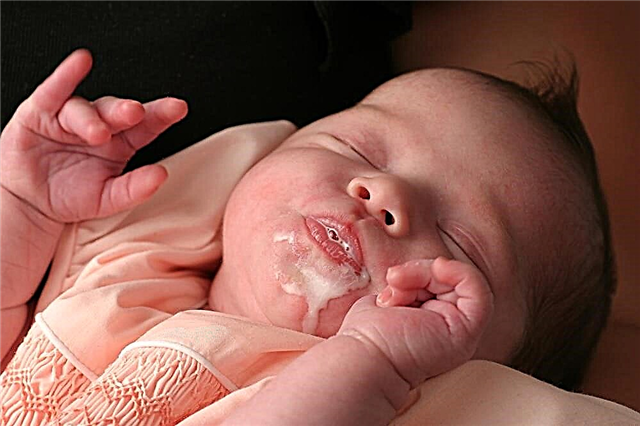
The baby has a rash or reddened cheeks, his tummy is "puffy" or he does not sleep well. Impressive mothers immediately write off all the problems of the first months of life on food and blame themselves for everything, of course. Some mothers go on a strict diet so that the baby would not receive something harmful with breast milk. Eating oatmeal on the water five times a day, they quickly bring themselves to neurosis, however, like a child.
People around (friends, grandmothers, neighbors) enthusiastically give advice on what you can eat and what you can't. The information comes in different, the mother gets tired of experimenting, and the child does not get better. The well-known children's doctor Yevgeny Komarovsky tells how to eat a nursing mother so that both she and the child feel good and comfortable.


Features:
Evgeny Komarovsky claims that the number of products that are equally useful and safe for both the mother and the baby is quite large. There is no need to go on a diet, which is advised by "all-knowing" friends. Diet is stress for the mother, and this stress is immediately transmitted to the baby, hence the increased anxiety, poor appetite of the child, tearfulness.
Komarovsky urges mothers not to experiment and not make fun of themselves. The basic principles of nutrition for nursing mothers have long been formulated and are not yet subject to revision.
The main thing is to exclude potentially allergenic foods - chocolate, citrus fruits, strong coffee, a large amount of red berries (strawberries, raspberries).
Almost everything that a mother takes for food is contained and present in breast milk in varying amounts, recalls Evgeny Komarovsky. Therefore, you should not eat anything that can impair the taste and smell of milk. These products include garlic, pepper, a large amount of onions, you should not eat spicy, sour, bitter.
The qualitative composition of breast milk can change if a woman eats foods that change it. It's no secret that legumes and cabbage are great foods for overcoming constipation. But they extend the laxative effect to breast milk, and therefore the baby may begin to suffer from colic due to increased gas production, and diarrhea may begin. A sane mother would also avoid such foods.

What should be the mother's nutrition during the period of feeding the baby. A short commentary by Evgeny Komarovsky on this question.
There is a common misconception - the fatter the milk, the more satisfying it is, the healthier it is for the baby. This is not so, says Evgeny Komarovsky. Fatty milk is more difficult to express, the baby has to make much more effort to suck it, and the small body needs to try very hard to digest excess fat later.
It is for this reason that mom do not give in to provocations and advice, especially to increase the fat content of milk, eating large quantities of sour cream, butter, cream, pork.
In general, it will be useful for the mother and child if the woman's menu includes dairy and dairy-free cereals, at least 500 grams of fresh vegetables and fruits per day (except for those that are "taboo"), low-fat meats and poultry in baked , boiled, stewed.
Common sense should be the best advice for a nursing mother, Komarovsky believes. If there is any doubt about whether to eat something or not, then it is better to eat very little of this product and carefully observe the child's reaction to the product. If his appetite does not change, he does not become covered with a rash and does not sleep well and suffer from pain in the tummy, then the product can be eaten by mom.
Whether to drink a lot of liquid is a purely individual question. Doctors in this regard have not yet come to a consensus. Some experts are sure that the amount of fluid a woman drinks does not affect the amount of breast milk, others (including mothers themselves) argue that an extra cup of tea or water helps to increase the amount of breast milk.


Komarovsky advises to evaluate your abilities according to the situation. If there is enough milk for the child, and it still remains, then it is not worth drinking something specifically to enhance lactation. But if the child clearly does not have enough milk, the mother should try to drink more.
As for drinks, Evgeniy Olegovich advises giving preference to sweet green tea with the obligatory addition of milk, dried fruit compote. You can drink juices, but not in liters or even in half-liter mugs, but in moderation. Among them it is worth giving preference to carrot, apple and grape juices.
Choose milk no fatter than 2.5% and be sure to boil it. Fermented milk products are welcome, as is baked milk.


Meals by month
In order for mom not to fuss over trifles, Komarovsky recommends drawing up an approximate menu in advance for several months in advance, so that after childbirth, immediately start eating right.
What kind of milk the child receives can greatly affect his health, because it is in the first months that the digestive system is formed and "tuned", the production of enzymes is established, and the baby's own immunity begins to form.

First month
Banned are fatty broths, pork, lard, yeast baked goods, pickled foods and canned food, whole cow's or goat's milk, cocoa and coffee.
It is best to eat vegetables, and in boiled and baked form too:
- The fruit can be eaten after being cooked - baked apples are perfect.
- Soups - in lean broth and broth made from lean beef or chicken breast.
- Eat dairy or dairy-free cereals with moderate amounts of oil every day.
- It is better to replace bread with crackers or biscuits.
- Compotes are very useful.


Second month
Starting from the fifth week of the baby's life, the mother can gradually introduce into her diet (in small portions) lean meat in boiled, stewed or baked form, as well as sea fish, quail and chicken eggs prepared in similar ways. Yeast bread, chocolate, alcohol, carbonated drinks remain banned.

Third month
During this period, mother can gradually begin to eat soups with fat broths. It's time to cook borsch, cabbage soup, but you shouldn't be especially zealous with cabbage in them, put it less.
With tea, mom can eat jam and jam in small quantities, if mom herself is not allergic, then a small amount of high-quality fresh honey is permissible.
You can add vegetable salads to the menu, as well as fresh fruits, excluding citrus fruits. Mom can already afford a small amount of pasta.


Fourth month
Baking and bread made from yeast dough, fatty cow's milk, hot spices, spices, garlic, chocolate and cocoa are still banned. But the diet can be expanded a little by adding fresh herbs, a small amount of onions and sugar (very moderately!) To everything that you already can eat.


Fifth month
You can now eat baked goods, but only yeast-free and home-made, for example, cookies. Mom can already add a small amount of spices to the soup. You can also eat steam cutlets.

Sixth month
Mom can safely add fried minced fish cutlets to the allowed products; by the end of the sixth month, you can make chicken breast cutlets.

After half a year
Legumes, which were previously banned, fatty meats (pork and lamb) can be added to the diet in small quantities. This does not mean that you can already eat lard and eat garlic.
Pork should be cooked without frying in oil, it is better if it is stewed.
Mom can now eat seafood.


Alcohol, chocolate and coffee, as well as all types of canned food, remain banned for up to a year.

Tips
A child will be able to get the maximum amount of vitamins, fats, proteins and carbohydrates if the mother, when drawing up the menu, knows the main principle of organizing a healthy diet: every meal should contain all, without exception, components - both fats, proteins, and carbohydrates.
Example: For breakfast, mom eats milk rice porridge with butter, with which a sufficient amount of carbohydrates and animal fats goes into milk. Therefore, there is no need to snack on this porridge with biscuits or crackers.
But you can't limit yourself to porridge only, because this breakfast will not contain fructose and proteins. Therefore, one green apple (a source of monosaccharides) and 100 grams should be added to it. low-fat cottage cheese (the same missing protein).
It is advisable to keep a food diary, in which mom will indicate everything that she ate and drank. This will make it easier to find the “culprit” of the child's inadequate reaction to some product. If a rash develops or a stomach upset occurs, the cause must be sought in a new product introduced recently.


If the child has certain problems, for example, acetone syndrome, the mother should plan her nutrition in such a way that the baby does not receive products with the milk that have an additional negative effect on the liver.
With acetone in children, mothers should eat boiled turkey and rabbit meat, and buckwheat and corn should be preferred from cereals. It is better to give up spinach, cauliflower, pastries, fatty broths and everything fried.
A baby with atopic dermatitis, popularly called "diathesis", should not be deprived of breast milk just because he has an unhealthy reaction to it. Mom should review the diet, exclude everything that may be allergenic. In rare cases, the introduction of lactose-free hypoallergenic infant formula may be required. But such a decision should be made only together with the pediatrician who observes the child.


After giving birth, the life of young parents goes back to normal. There is a time of holidays and feasts. But now it is not enough for a nursing mother to eat from the festive table. After all, this can turn into a problem for the child. Especially for such cases - recipes for salads with chicken.



